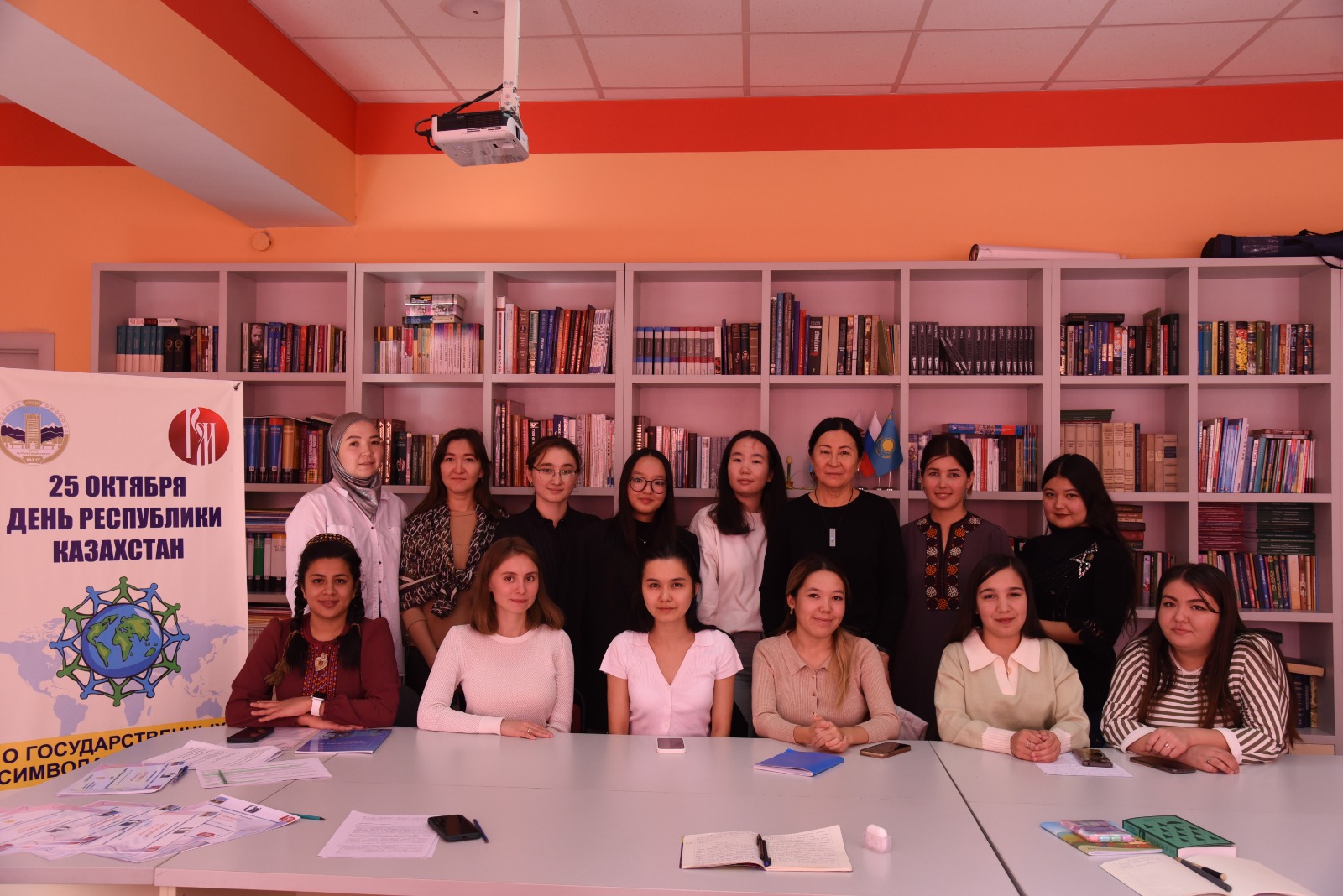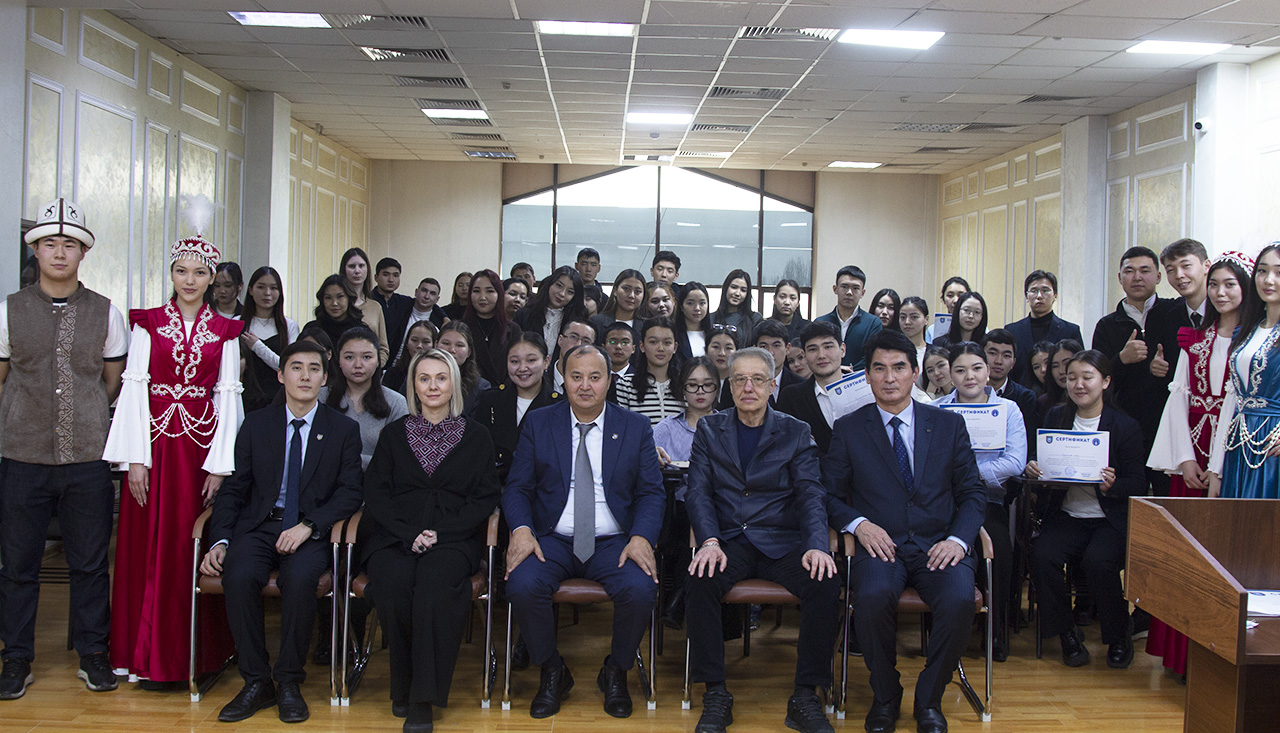The Day of Republic -October 25-National Holiday

On October 24, the round table talk on the topic "State Symbols of the CIS Countries," dedicated to the Day of the Republic of Kazakhstan was held. The event was held in the Center for Russian Language and Culture at the Faculty of Philology of al-Farabi KazNU.
On October 25, 1990, the Declaration on State Sovereignty of Kazakhstan was adopted. This document became the political and a legal base of the Independence of the Republic.
Kassym-Jomart Tokayev said in one of his speeches: "The Day of Republic represents the revival of centuries-old traditions of the statehood of the Kazakh people. On this day, the dream of our ancestors who fought for our independence was realized. "
The event was not only a memorable event, but also a wonderful opportunity for representatives from Kazakhstan, Russia, Turkmenistan and Uzbekistan to share their symbols and cultural heritage.
So, Indira Zhanalina, doctoral student of al-Farabi KazNU, presented the state symbols of Kazakhstan and spoke about the stages of the formation of sovereignty. Svetlana Ivanova, a graduate student of Udmurt State University, made a presentation about the symbols of the Russian Federation. Umida Amurova, a master's student of al-Farabi KazNU, made the report about about the Republic of Uzbekistan which was of a great interest. She told about the features, cultural wealth and historical heritage of her country. The 2nd year of the Department of Russian Philology and World Literature made the report about Turkmenistan.
Saule Bayazovna, professor of the Department of Russian Philology and World Literature and Head of the Center for Russian Language and Culture, made a concluding speech. She said that the events held within SDGs play an important role in strengthening friendly and sustainable relations and mutual understanding between the countries. She also made a special focus on SDGS 17. (SDGS 17: Partnership for sustainable development which says: Enhance North-South and South-South cooperation, as well as trilateral regional and international cooperation in the fields of science, technology and innovation and access to relevant achievements; enhance knowledge sharing on mutually agreed terms, including through improved coordination between existing mechanisms, in particular at the UN level, as well as through a global technology transfer facilitation mechanism.)
